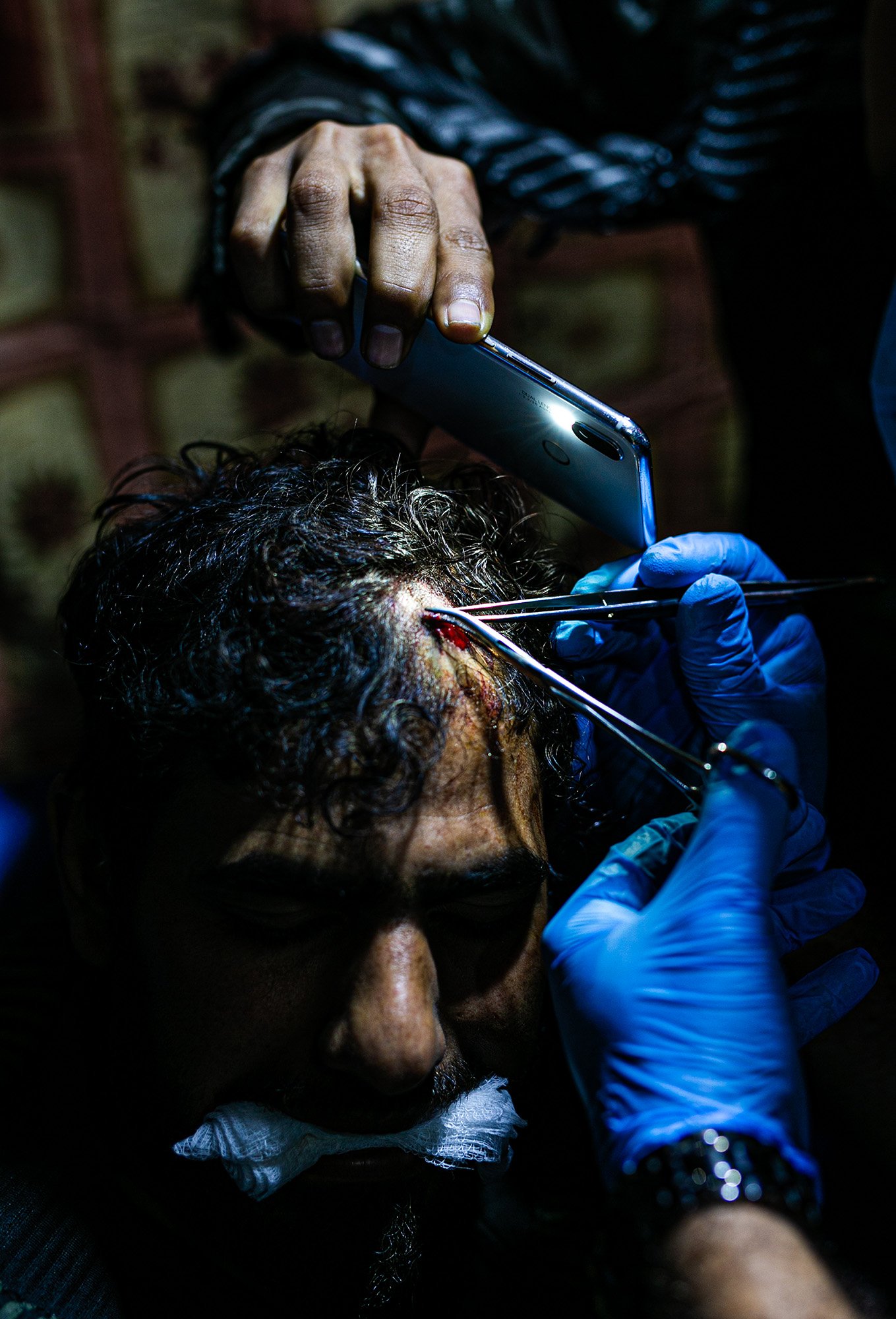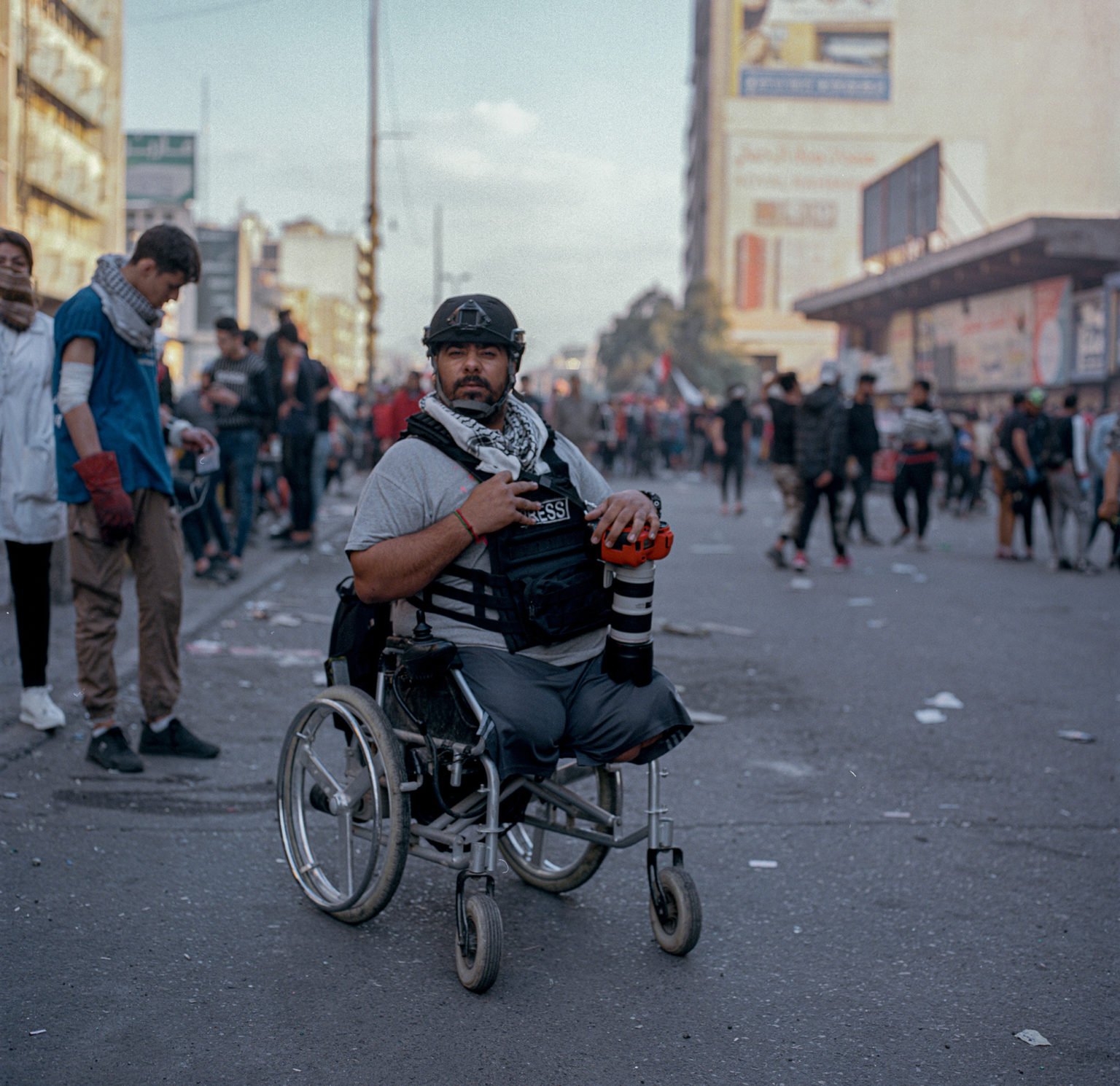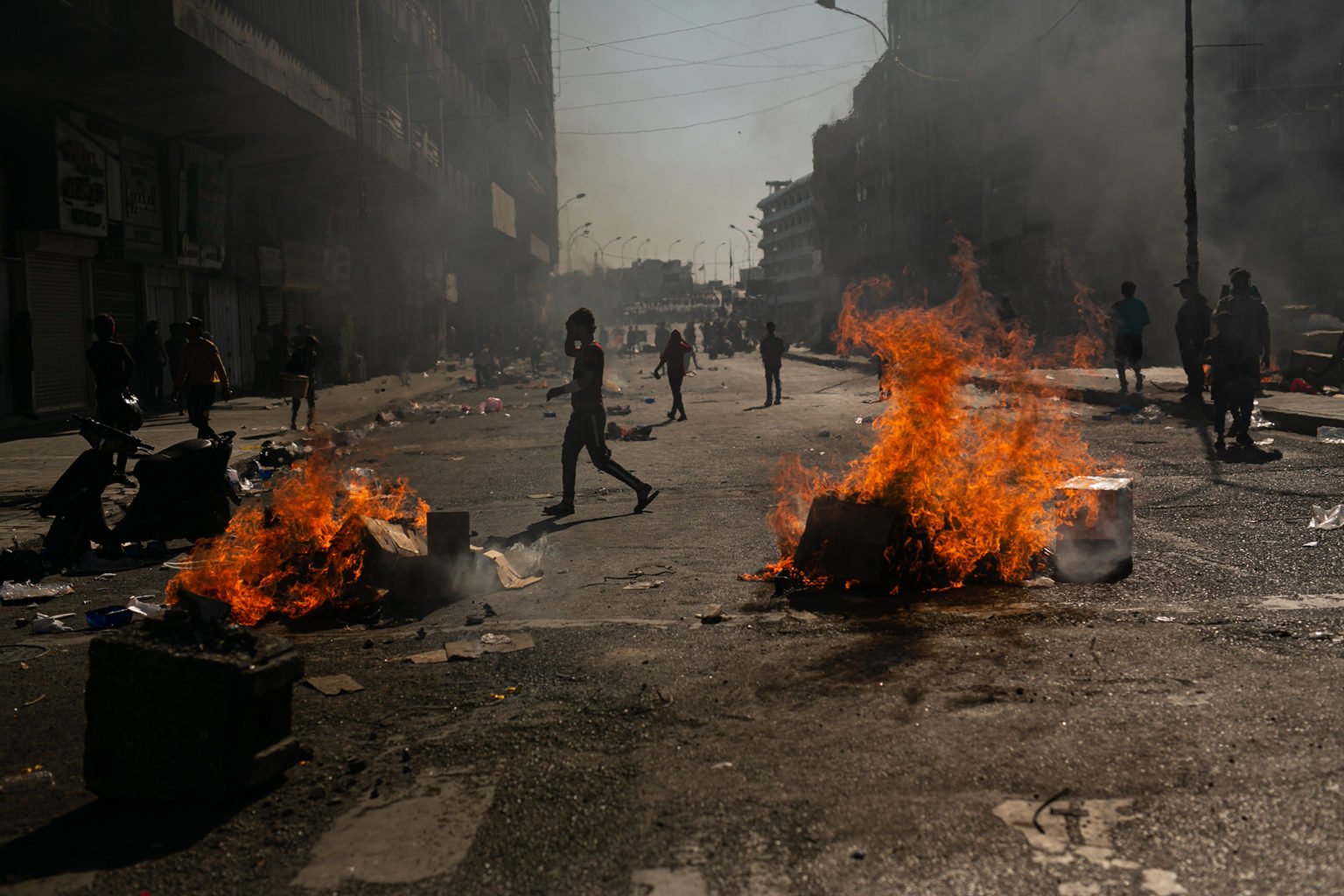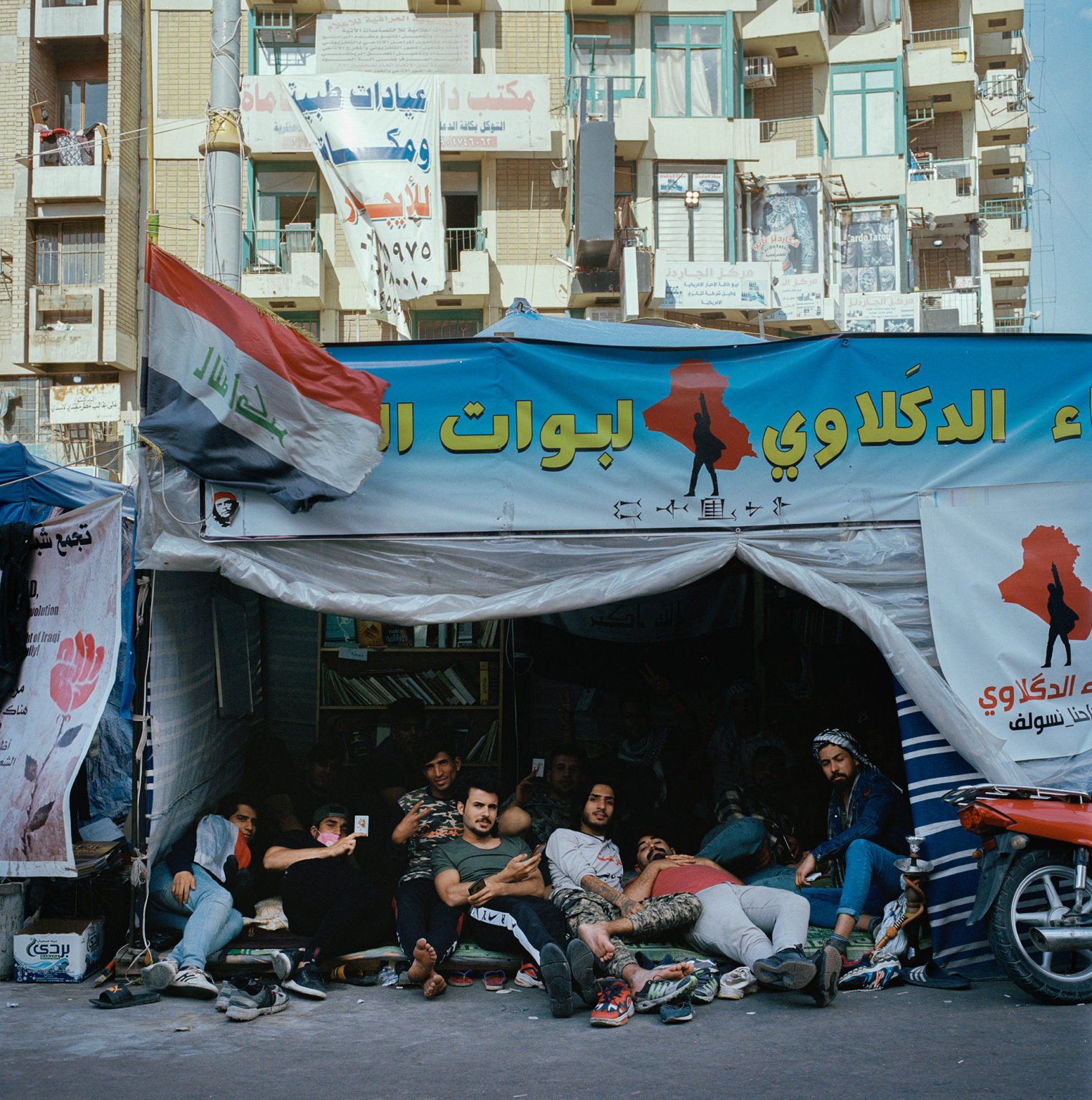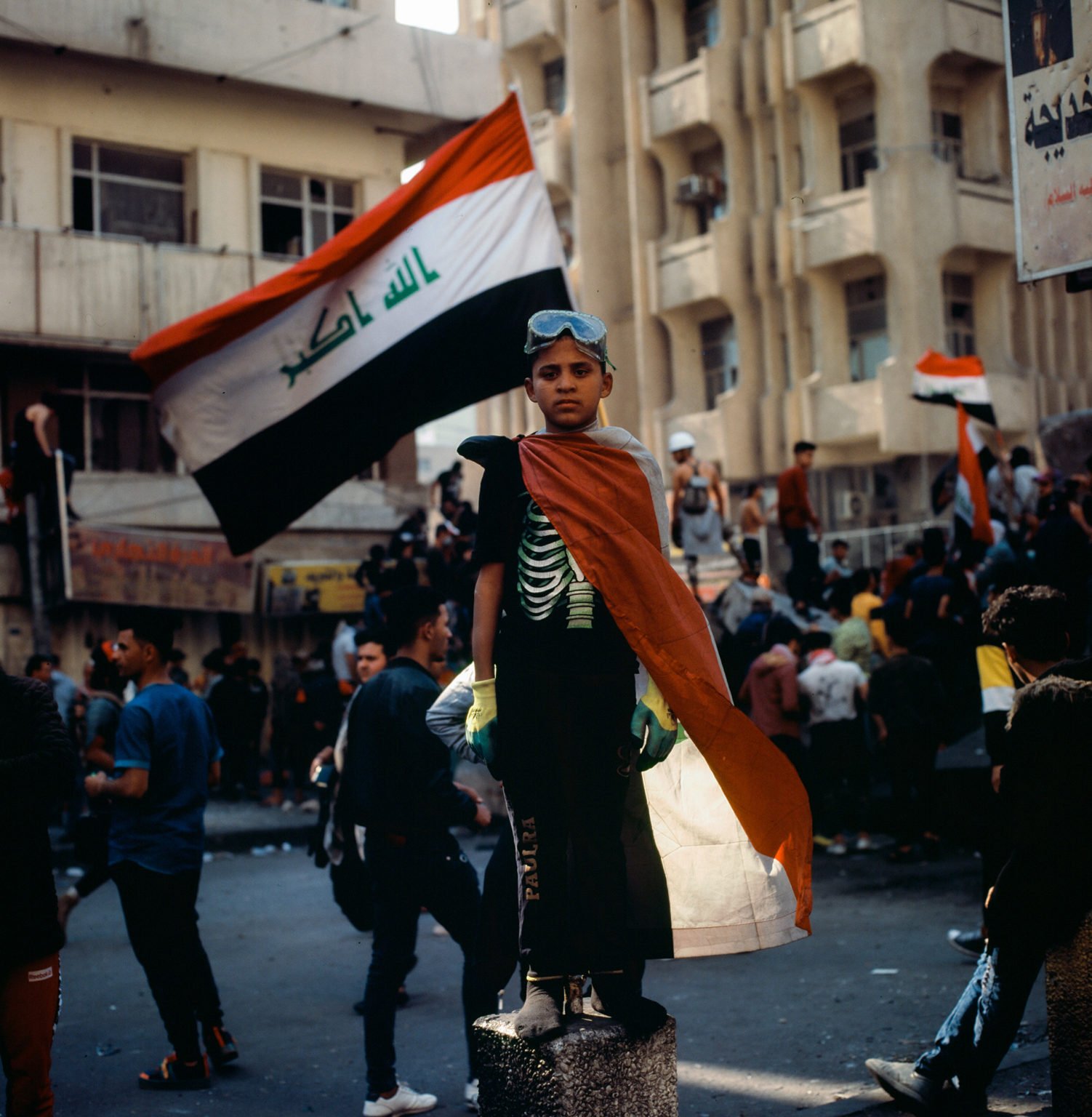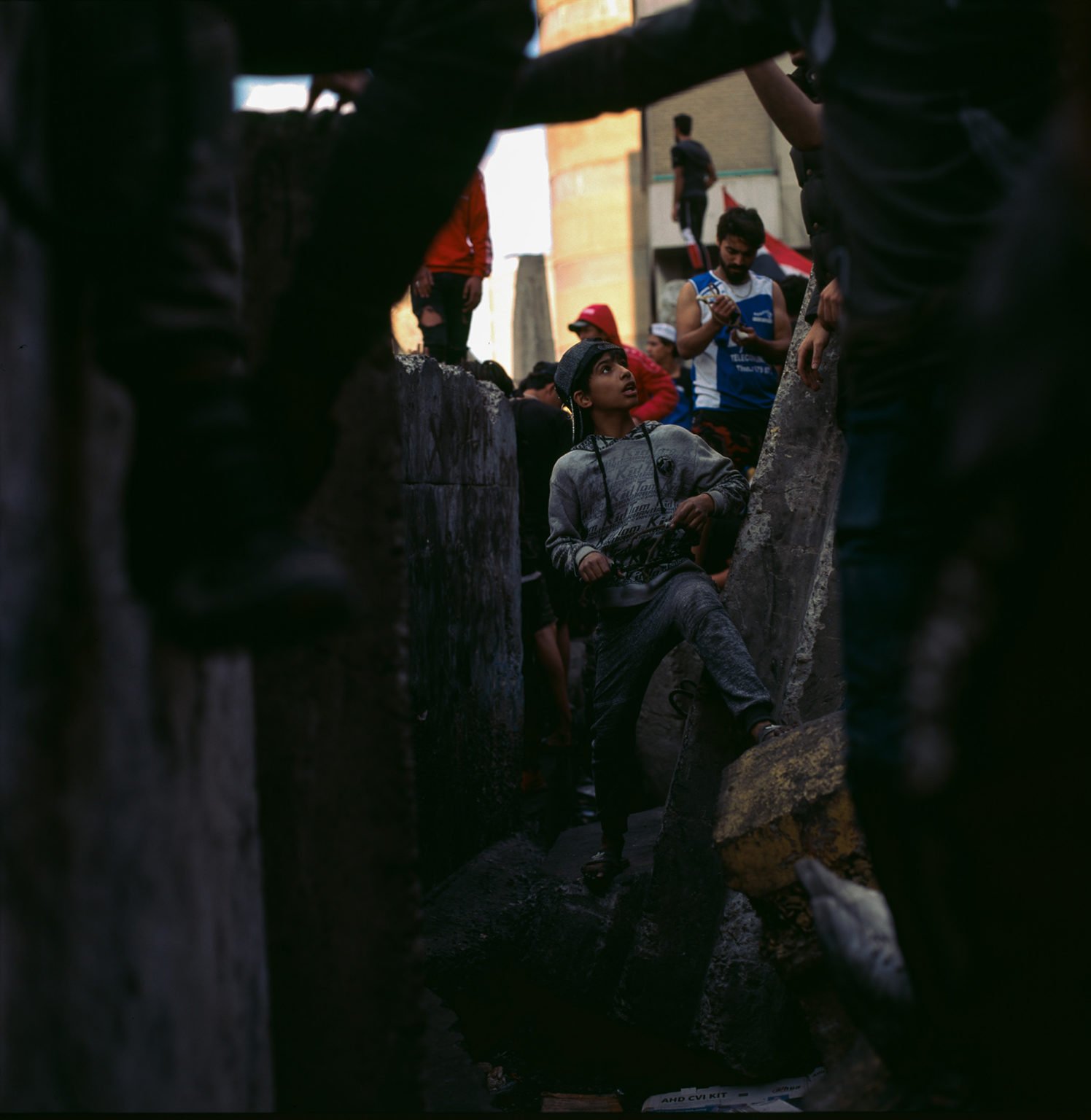“Hell could be such a place - a place of suffering and death.” This “Hell” is now also known as the square at the heart of an uprising in Iraq."
Tahrir Square, Baghdad, has been the centre for month-long protests. Deadly clashes between protesters and government security forces have been arduous and constant since October 2019, with thousands of people living in a tent village of Tahrir Square. It’s reported that there have been over 700 civilians killed with over 30,000 injured.
The protests started on the back of corruption, unemployment and inefficient public services within the government. Overall, Iraq produces more oil than the United Arab Emirates and since the US occupation in 2003-2011, the country has seen mighty overlords from various countries meddling with finances, which has meant money hasn’t been distributed into where it was deemed to originally go.
Fascinated by the statues in Mosul, a series of 2000 year old statues situated in Iraq that were destroyed by Isis militants in 2015, Janne Korkko became well educated about what was going on across the country. A photo-journalist by trade, Korkko first visited Iraq in 2016 and has since returned four times over the past three years. After making an important decision to visit in 2019, Korkko bravely integrated himself into the camps at Tahrir square. “I have a very deep desire to see and understand the gravity of the situation. I have lived, eaten, slept and shared both happy and sad moments. I have felt what it means to live without rights, a home, without money, without power, with disabilities, to be blind. I was there and listened. Despair is the thing that comes to mind first of all. People want fundamental rights, and that’s why people of all ages stay on the square. Protests have become a duty for all ages.”
